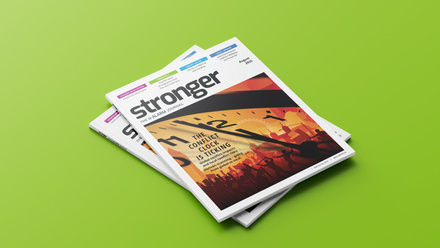Modern methods of construction such as modular buildings, flat slab construction and timber framing, can deliver on safety, cost and sustainability. But, as these methods don’t have the track record of conventional construction processes, it’s essential to engage with insurers before a single brick – or pod – is laid.
What are modern methods of construction (MMC)?
MMC are innovative ways of building that embrace new and traditional materials and technologies. Buildings can be constructed using components such as timber frames, precast panels and modules or pods – all of which can speed up the construction process and offer greater flexibility in design. MMC can also be used when retrofitting, repairing or extending existing buildings.
MMC can also enable large parts of the project to be shifted off-site. For example, with modular buildings, all the necessary components and modules can be produced in factories, sometimes even 3D printed, then brought to the site for assembly.
The challenges of MMC
For an organisation considering an MMC project, a key challenge is insurance. Although insurers are supportive of MMC, its use can change the risk profile of a building, both during the design and build phase but also once it’s in use.
Unfortunately, as many of the processes are new or evolving, there are plenty of unknowns, and some elements make insurers more nervous.
Fire risk is a key issue. The use of sustainable materials, whether that’s wool for insulation or a timber frame, raises concerns around fire resistance. Once a fire takes hold, it may be more difficult to contain it, resulting in a total loss. This can lead to a significant claim but could also endanger lives if the fire spreads quickly.
Remedial works can also be more expensive on MMC buildings. Bespoke replacement items may be required and costs can escalate where damage is to a modular building. For example, if the module is towards the bottom of a stack, all the modules above it may need to be removed to replace or repair it. In some cases, it may be more cost-effective to demolish the building entirely.
It's not all doom and gloom though as many elements of MMC do not overtly impinge on the insurance programme. Some can even improve the risk profile, for example, energy efficient lighting (LED) and heating (heat source pumps) are both regarded as lower risk than more traditional options.
The shift from onsite to offsite processes is another positive from an insurance perspective, especially during construction. As well as fewer accidents, as more of the work takes place offsite in controlled environments such as factories, there’s also a lower risk of delays due to the UK weather.
Insuring your MMC project
The insurance industry recognises the benefits of MMC and is keen to support new construction developments. Speaking to your ensuring early will ensure any projects strike the right balance between sustainability and insurability.
Engaging early with insurers is essential if your organisation is looking to secure affordable insurance for an MMC project. We recommend working with all key stakeholders – insurers, designers, project managers and facilities managers – at design stage.
As well as ensuring the building is insurable and meets the requirements of all parties, this will help to avoid costly alterations, retrofitting and compromise at, and post, build stage.
Additionally, insurers can bring considerable experience of MMC to the table: they will have seen other projects and will be able to share their insight. This could improve a building’s risk profile but it might also highlight potential cost savings or alternative approaches that might benefit your project.
MMC benefits
Safety
As a significant part of the construction is done offsite, health and safety is easier to control. This, and the reduction in time spent on site, can help reduce accidents and fatalities.
Speed
Offsite and modular construction feeds into faster build times. Figures from the Royal Institute of British Architects (RIBA) estimate reduction in construction programme times are between 20% and 60%.
Savings
Faster construction times and greater control over production mean RIBA estimates a 20% to 40% reduction in construction costs. It also points to another factor feeding into these savings – a 70% reduction in onsite labour.
Sustainable
MMC can be used to produce greener buildings but the process itself is also much more energy efficient than more traditional methods. Research by WRAP found that MMC can reduce energy consumption by 67% reduction; reduce waste onsite by 70%-90%; and cut deliveries to the construction site by 90%.
As well as being positive for the organisations commissioning MMC projects, these benefits can help the UK achieve some of its key objectives including plugging the housing shortage and reaching Net Zero.


